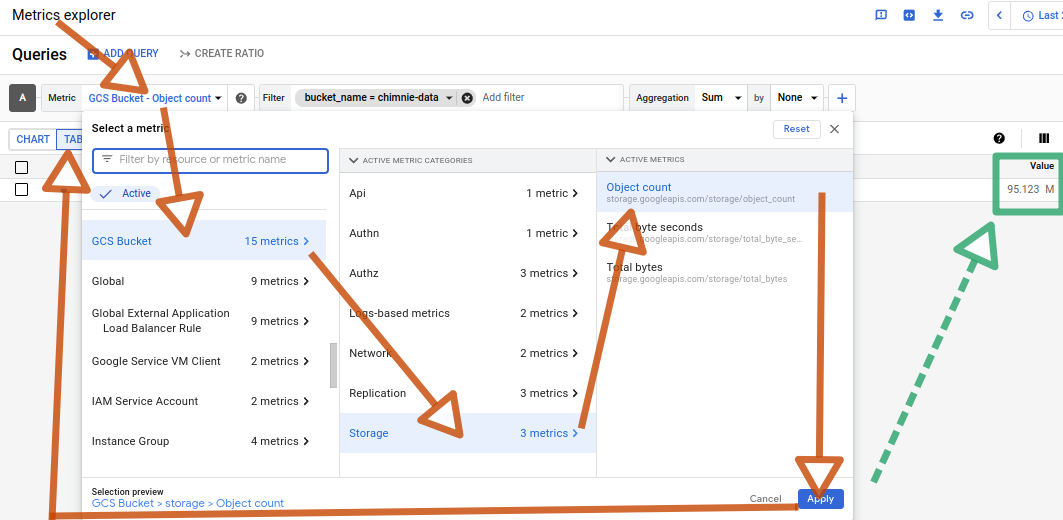Newer Approach
gsutil now has a du command. This makes it even easier to get a count:
$ gsutil du gs://pub | wc -l
232
Older Approach
The gsutil ls command with options -l (long listing) and -R (recursive listing) will list the entire bucket recursively and then produce a total count of all objects, both files and directories, at the end:
$ gsutil ls -lR gs://pub
104413 2011-04-03T20:58:02Z gs://pub/SomeOfTheTeam.jpg
172 2012-06-18T21:51:01Z gs://pub/cloud_storage_storage_schema_v0.json
1379 2012-06-18T21:51:01Z gs://pub/cloud_storage_usage_schema_v0.json
1767691 2013-09-18T07:57:42Z gs://pub/gsutil.tar.gz
2445111 2013-09-18T07:57:44Z gs://pub/gsutil.zip
1136 2012-07-19T16:01:05Z gs://pub/gsutil_2.0.ReleaseNotes.txt
... <snipped> ...
gs://pub/apt/pool/main/p/python-socksipy-branch/:
10372 2013-06-10T22:52:58Z gs://pub/apt/pool/main/p/python-socksipy-branch/python-socksipy-branch_1.01_all.deb
gs://pub/shakespeare/:
84 2010-05-07T23:36:25Z gs://pub/shakespeare/rose.txt
TOTAL: 144 objects, 102723169 bytes (97.96 MB)
If you really just want the total, you can pipe the output to the tail command:
$ gsutil ls -lR gs://pub | tail -n 1
TOTAL: 144 objects, 102723169 bytes (97.96 MB)





